22 start with V start with V

The public has voiced concern over the adverse effects of vaccines from the moment Dr. Edward Jenner introduced the first smallpox vaccine in 1796. The controversy over childhood immunization intensified in 1998, when Dr. Andrew Wakefield linked the MMR vaccine to autism. Although Wakefield’s findings were later discredited and retracted, and medical and scientific evidence suggests routine immunizations have significantly reduced life-threatening conditions like measles, whooping cough, and polio, vaccine refusal and vaccine-preventable outbreaks are on the rise. This book explores vaccine hesitancy and refusal among parents in the industrialized North. Although biomedical, public health, and popular science literature has focused on a scientifically ignorant public, the real problem, Maya J. Goldenberg argues, lies not in misunderstanding, but in mistrust. Public confidence in scientific institutions and government bodies has been shaken by fraud, research scandals, and misconduct. Her book reveals how vaccine studies sponsored by the pharmaceutical industry, compelling rhetorics from the anti-vaccine movement, and the spread of populist knowledge on social media have all contributed to a public mistrust of the scientific consensus. Importantly, it also emphasizes how historical and current discrimination in health care against marginalized communities continues to shape public perception of institutional trustworthiness. Goldenberg ultimately reframes vaccine hesitancy as a crisis of public trust rather than a war on science, arguing that having good scientific support of vaccine efficacy and safety is not enough. In a fraught communications landscape, Vaccine Hesitancy advocates for trust-building measures that focus on relationships, transparency, and justice.
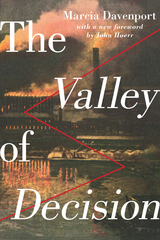
This reissue features a new foreword by noted steel industry historian John Hoerr, author of And the Wolf Finally Came, who places the novel in context as a classic depiction of twentieth-century America.
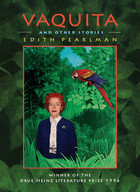
“Before I was a writer I was a reader; and reading remains a necessary activity, occupying several joyous hours of every day. I like novels, essays, and biographies; but most of all I like the short story: narrative at its most confiding.
“My own work, and particularly the stories in Vaquita, aims at a similar intimacy between writer and reader. My imagined reader wants to know who loves whom, who drinks what, and, mostly, who answers to what summons. Thank Heavens for Spike Lee! Before his movies writers and critics had to natter about moral stances; now I can say with a more tripping tongue that my characters are people in peculiar circumstances, aching to Do The Right Thing if only they can figure out what The Right Thing is. If not, they’ll at least Do Their Own Right Thing Right.
“And I’m drawn to heat: sweltering Central American cities; a steamy soup kitchen; Jerusalem in midsummer; the rekindled passion of an old historian; the steady fire of terminal pain. I like solitaires, oddities, charlatans, and children. My characters are secretive; in almost every story somebody harbors a hidden love, dread, regret, or the memory of an insult awaiting revenge.
“When I stop writing stories I plan to write letters, short and then shorter. My mother could put three sentences onto a postcard and make the recipient think he’d read a novel. I’m working towards a similar compression.”


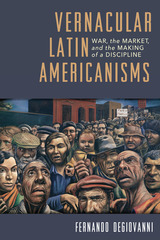
In Vernacular Latin Americanisms, Fernando Degiovanni offers a long-view perspective on the intense debates that shaped Latin American studies and still inform their function in the globalized and neoliberal university of today. By doing so he provides a reevaluation of a field whose epistemological and political status has obsessed its participants up until the present. The book focuses on the emergence of Latin Americanism as a field of critical debate and scholarly inquiry between the 1890s and the 1960s. Drawing on contemporary theory, intellectual history, and extensive archival research, Degiovanni explores in particular how the discourse and realities of war and capitalism have left an indelible mark on the formation of disciplinary perspectives on Latin American cultures in both the United States and Latin America. Questioning the premise that Latin Americanism as a discipline comes out of the tradition of continental identity developed by prominent intellectuals such as José Martí, José E. Rodó or José Vasconcelos, Degiovanni proposes that the scholars who established the discipline did not set out to defend Latin America as a place of uncontaminated spiritual values opposed to a utilitarian and materialist United States. Their mission was entirely different, even the opposite: giving a place to culture in the consolidation of alternative models of regional economic cooperation at moments of international armed conflict. For scholars theorizing Latin Americanism in market terms, this meant questioning nativist and cosmopolitan narratives about identity; it also meant abandoning any Bolivarian project of continental unity or of socialist internationalism.
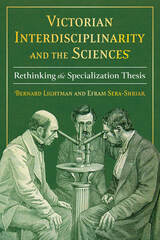
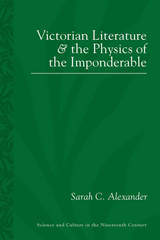
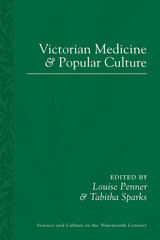
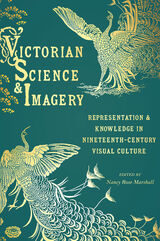
The nineteenth century was a period of science and imagery: when scientific theories and discoveries challenged longstanding boundaries between animal, plant, and human, and when art and visual culture produced new notions about the place of the human in the natural world. Just as scientists relied on graphic representation to conceptualize their ideas, artists moved seamlessly between scientific debate and creative expression to support or contradict popular scientific theories—such as Darwin’s theory of evolution and sexual selection—deliberately drawing on concepts in ways that allowed them to refute popular claims or disrupt conventional knowledges.
Focusing on the close kinship between the arts and sciences during the Victorian period, the art historians contributing to this volume reveal the unique ways in which nineteenth-century British and American visual culture participated in making science, and in which science informed art at a crucial moment in the history of the development of the modern world. Together, they explore topics in geology, meteorology, medicine, anatomy, evolution, and zoology, as well as a range of media from photography to oil painting. They remind us that science and art are not tightly compartmentalized, separate influences. Rather, these are fields that share forms, manifest as waves, layers, lines, or geometries; that invest in the idea of the evolution of form; and that generate surprisingly kindred responses, such as pain, pleasure, empathy, and sympathy.


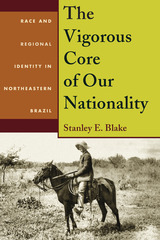
The Vigorous Core of Our Nationality explores conceptualizations of regional identity and a distinct population group known as nordestinos in northeastern Brazil during a crucial historical period. Beginning with the abolition of slavery and ending with the demise of the Estado Novo under Getúlio Vargas, Stanley E. Blake offers original perspectives on the paradoxical concept of the nordestino and the importance of these debates to the process of state and nation building.
Since colonial times, the Northeast has been an agricultural region based primarily on sugar production. The area’s population was composed of former slaves and free men of African descent, indigenous Indians, European whites, and mulattos. The image of the nordestino was, for many years, linked with the predominant ethnic group in the region, the Afro-Brazilian. For political reasons, however, the conception of the nordestino later changed to more closely resemble white Europeans.
Blake delves deeply into local archives and determines that politicians, intellectuals, and other urban professionals formulated identities based on theories of science, biomedicine, race, and social Darwinism. While these ideas served political, social, and economic agendas, they also inspired debates over social justice and led to reforms for both the region and the people. Additionally, Blake shows how debates over northeastern identity and the concept of the nordestino shaped similar arguments about Brazilian national identity and “true” Brazilian people.

Winner of the Cultural Studies in English Prize, 2012
This book explores the role of vision and the culture of observation in Victorian and modernist ways of seeing. Willis charts the characterization of vision through four organizing principles—small, large, past and future—to survey Victorian conceptions of what vision was. He then explores how this Victorian vision influenced twentieth-century ways of seeing, when anxieties over visual "truth" became entwined with modernist rejections of objectivity.
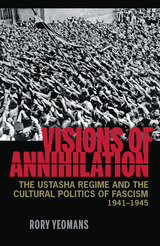
The fascist Ustasha regime and its militias carried out a ruthless campaign of ethnic cleansing that killed an estimated half million Serbs, Jews, and Gypsies, and ended only with the defeat of the Axis powers in World War II.
In Visions of Annihilation, Rory Yeomans analyzes the Ustasha movement’s use of culture to appeal to radical nationalist sentiments and legitimize its genocidal policies. He shows how the movement attempted to mobilize poets, novelists, filmmakers, visual artists, and intellectuals as purveyors of propaganda and visionaries of a utopian society. Meanwhile, newspapers, radio, and speeches called for the expulsion, persecution, or elimination of “alien” and “enemy” populations to purify the nation. He describes how the dual concepts of annihilation and national regeneration were disseminated to the wider population and how they were interpreted at the grassroots level.
Yeomans examines the Ustasha movement in the context of other fascist movements in Europe. He cites their similar appeals to idealistic youth, the economically disenfranchised, racial purists, social radicals, and Catholic clericalists. Yeomans further demonstrates how fascism created rituals and practices that mimicked traditional religious faiths and celebrated martyrdom.
Visions of Annihilation chronicles the foundations of the Ustasha movement, its key actors and ideologies, and reveals the unique cultural, historical, and political conditions present in interwar Croatia that led to the rise of fascism and contributed to the cataclysmic events that tore across the continent.
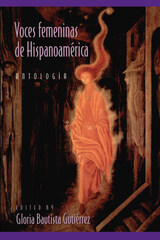
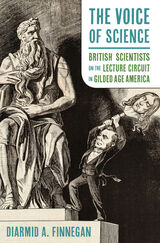
For many in the nineteenth century, the spoken word had a vivacity and power that exceeded other modes of communication. This conviction helped to sustain a diverse and dynamic lecture culture that provided a crucial vehicle for shaping and contesting cultural norms and beliefs. As science increasingly became part of public culture and debate, its spokespersons recognized the need to harness the presumed power of public speech to recommend the moral relevance of scientific ideas and attitudes. With this wider context in mind, The Voice of Science explores the efforts of five celebrity British scientists—John Tyndall, Thomas Henry Huxley, Richard Proctor, Alfred Russel Wallace, and Henry Drummond—to articulate and embody a moral vision of the scientific life on American lecture platforms. These evangelists for science negotiated the fraught but intimate relationship between platform and newsprint culture and faced the demands of audiences searching for meaningful and memorable lecture performances. As Diarmid Finnegan reveals, all five attracted unrivaled attention, provoking responses in the press, from church pulpits, and on other platforms. Their lectures became potent cultural catalysts, provoking far-reaching debate on the consequences and relevance of scientific thought for reconstructing cultural meaning and moral purpose.
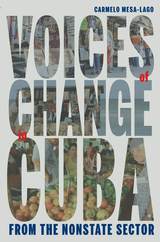
Based on eighty in-depth interviews recently conducted in Cuba, this book captures actual voices from this evolving economic sector. It details workers’ level of satisfaction with what they do and earn, profits (and how they are allocated between consumption and investment), plans to expand their activities, receiving foreign remittances and microcredit, competition, forms of advertising, and payment of taxes. Perhaps most revealing are the speakers’ views on the obstacles they face and their desires for change and improvement. As such, the book offers fascinating insights into today’s Cuban economy from the nonstate sector, while also reflecting on its potential for development and the obstacles it faces.

Duncan views the work of six writers in the context of more well known writers of the period (Ruflo, Fuentes, and Del Paso), and concludes with a chapter on other recent innovators in Mexican literature. Despite their diversity, these texts share many common features, and unlike social realism, the works are not openly political, but at the same time they question assumptions about reality itself-and the relation of fiction to truth.
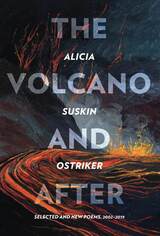
OLD WOMAN AT THE RIVER
On the bank of the river
I slide inside my sleeping bag
sleep is good if I am not
kept awake by coughing
the sound of the water soothes
time passes and does not pass
when I am better I will sit
and meditate for a while
there may be birds to listen to
then I will step down the bank
and put my naked foot in the water
which will shock at first,
being so cold, so swift.
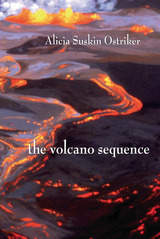

READERS
Browse our collection.
PUBLISHERS
See BiblioVault's publisher services.
STUDENT SERVICES
Files for college accessibility offices.
UChicago Accessibility Resources
home | accessibility | search | about | contact us
BiblioVault ® 2001 - 2024
The University of Chicago Press









